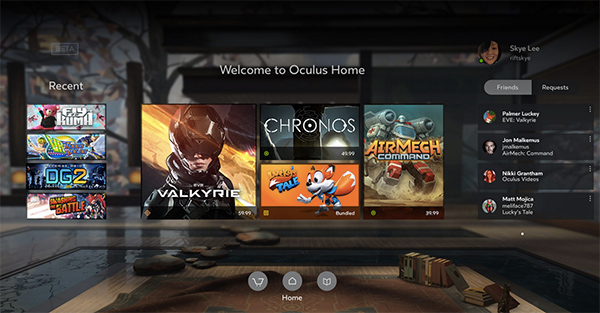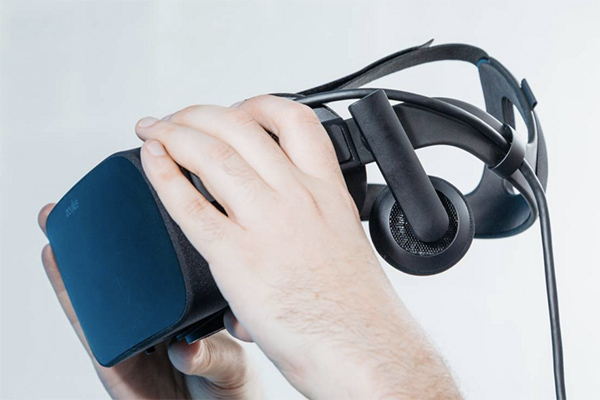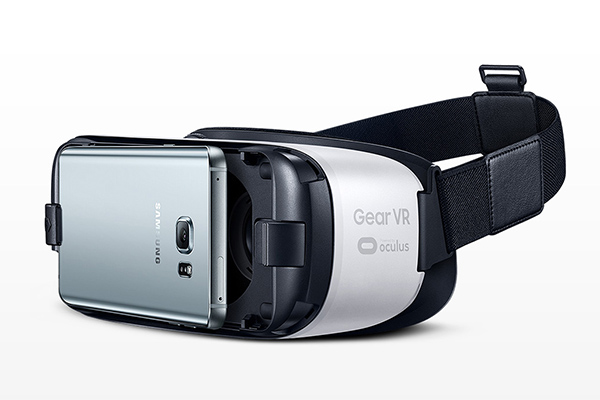After the extensive wait (how many years has it been in the making now?…) virtual reality has finally made it’s big play by way of the Oculus Rift.
With reviews and speculations sweeping the web, we’ve done some digging into the technology – what it is, and whether the Rift is the next gaming phase, or something bigger. Much bigger, shifting the future of communication.
What is the Oculus Rift
Transforming the way the world sees Virtual Reality (literally), the Oculus Rift has been generating buzz since it’s first announcement back in 2012. Though the delay in production makes it seem somewhat like old news – the big news is the final production is finally here, and available for purchase on the mainstream market.
The “next generation of virtual reality”, the Rift is a headset immerging the user into a world of Virtual Reality (VR) that takes you inside the digital world (kind of like Tron, but less evasive). Ok not exactly inside the digital world, but it does possess the power to make you feel as though you were there.
A technology that has been only lightly touched on considering the advancements of our digital era – it’s a bout time VR has caught up with the trend, and evolved traditional viewing to a segue visual experience with the capability of transporting users through a gateway to endless worlds.

The innovative optics display offers a wide-angle view that simulates a natural line of sight, and the graphics display (nearly 2.5K resolution) is seamless with beastly processors backing up the system for a stereoscopic 3D experience. So beastly in fact, that not every computer is capable of handling the Oculus Rift. So for anyone considering the $600 purchase, be sure to include the price of an updated PC into your investment calculations.
Rift Compared to Other Virtual Reality Headsets
Not alone, the Rift is being launched along side a few other Virtual Reality headsets from the get go, including its competitor models the HTC Vive and Samsung Gear. But as the first of this stage in VR (and having years to perfect the gear), the Oculus Rift still seems to hold some advantages in the technology department.
The design itself is carefully executed in a way that offers maximum comfort for the otherwise fairly intrusive design. After all, this is a full-head gear item we’re talking about, weighing over a pound and strapped right to the users face.
Sound a bit uncomfortable? Not according to Peter Rubin from Wired, who claims in his recent review of the Rift “the weight is distributed well and feels much, much lighter than that. There are no pain points, even after long sessions (which I found to be a problem with the Gear VR, particularly on the bridge of my nose). You put it on and adjust the side and top Velcro for a comfortable fit, and then… well, that’s it.”
He continues to make positive reflections regarding the visuals and quality of the audio through the removable headphones – giving the user the choice to use the built in model, or swapping them out with earphones of choice.
The biggest problem with the Oculus Rift – the reliance on supporting industries to back them up with media that can be used with their technology.
The product page itself lists several hardware requirements in order for the Rift to function properly with your computer system. If you work off a Mac, you can forget about it. The Rift is currently only compatible with Windows PC.
The Future of Virtual Reality
So is now the time to purchase your headset of the future? Maybe not quite, according to Jason Henry for the Wall Street Journal, “New capabilities will require more-powerful processors and higher-resolution headsets—someday hopefully ones that work without wires. If you buy a Rift today, chances are you’ll be replacing it in the near future.”

The Rift (while an innovative giant if it’s time) still has some kinks to work out in way of conveniences that we have all grown accustomed to (aka no wires, lightweight, and is there something for motion sickness?).
The headset itself is a somewhat intrusive design – and one more item in the list of gadgets to find a storage place in your entertainment cabinet. Unlike other wearable technology such as the Apple Watch and fitness trackers – a headset is not an item that already fits into the lifestyle of the users, requiring people to adapt in order to adopt the technology. And we all know how much people like change…
Which leads us to wonder if the future of the Rift is industry specific, or if it’s the beginning of a new technology era.
The most obvious answer is of course the gaming element. And not for the Mario Cart and Candy Crush lovers around the world – this tech is for serious gamers. Gamers that live for the next rush and upgrade in their hardware if it ads the slightest advantage to their gaming experience.
However, there are other opinions out there that believe the future of the Rift has a far more promising evolution. Once such believer is Facebook’s one and only, Mark Zuckerberg, commenting that VR is “the next major computing and communication platform after phones.”

A hefty statement from such a well respected individual in the world of social and digital technology.
After the developments in the last couple decades, we’ve been waiting for the next big movement powerful enough to change our lives. Is VR the future of communication, or just a gaming accessory? You decide. And let us know in the comments below your initial thoughts on the Oculus Rift and the future of Virtual Reality.





Tell us your thoughts in the comments